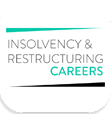Asking for a pay rise can be daunting, but sometimes, the simple answer is to ask. However, asking for a pay rise isn’t just about making the request; it’s about being prepared and professional. Here’s a guide to help you navigate this important conversation and increase your chances of success.
Ask but Go Prepared
Preparation is key when asking for a pay rise. Before you even schedule the conversation, take the time to gather data, practice your pitch, and identify the right moment to make your request.
- Gather Data: Research the market rate for your role and experience level. Use job adverts and salary surveys to benchmark your salary, but be cautious as these figures can sometimes be exaggerated.
- Practice the Conversation: Rehearse your pitch with a trusted colleague or mentor to build confidence and receive constructive feedback.
- Know the Right Time: Timing is crucial. Aim to ask during performance reviews, after a major achievement, or when you’ve taken on additional responsibilities.
Why Are You Worth What You Believe You Are Worth?
To justify your request for a pay rise, you need to clearly articulate why you believe you deserve it. Highlight your achievements, contributions, and the value you’ve added to the company.
- Concrete Examples: Provide specific examples of your accomplishments. Show how your efforts have positively impacted the company’s bottom line, efficiency, or overall success.
- Value Added: Explain how your skills and experience benefit the company. Make a compelling case for your worth by tying your contributions to the company’s goals and objectives.
Use Market Research Wisely
While it’s beneficial to use market research to support your case, remember that job adverts can sometimes inflate figures. Use this information as a benchmark, but rely more on your personal achievements and contributions.
- Benchmark Salaries: Compare your salary with industry standards, but be realistic about the figures.
- Realistic Expectations: Set a minimum figure in mind and have a buffer that would be acceptable. This range shows flexibility and understanding of the company’s constraints.
Highlight Your Demand Tactfully
Letting your employer know that you’re in demand can strengthen your case, but it must be done tactfully.
- Approached by Agents: Mention that you’ve been approached by agents, indicating your market value, but avoid using it as a threat. The goal is to demonstrate your value without appearing disloyal.
Consider All Factors, Not Just Salary
Never make a decision based solely on salary. Consider other important factors such as job satisfaction, growth opportunities, company culture, and work-life balance.
- Job Satisfaction: Assess how happy you are in your current role and environment.
- Growth Opportunities: Consider the potential for career progression within the company.
- Company Culture: Reflect on whether the company’s values align with yours.
- Work-Life Balance: Evaluate how your job affects your personal life and overall well-being.
Be Cautious in a Buoyant Market
In a market where demand for staff is high, salaries may be inflated. However, this doesn’t always mean the opportunity is great in the long term.
- Job Security: Be wary of moving to a company offering a significantly higher salary without considering its long-term stability.
- Long-Term Prospects: Ensure the new role aligns with your long-term career goals and offers security and growth.
Timing is Crucial
Choose the right moment to ask for a pay rise. Performance reviews, after a major achievement, or when taking on additional responsibilities are ideal times.
Know Your Company’s Pay Structure
Understanding your company’s compensation policies and cycles is essential. Some companies may have specific times of the year when pay raises are considered.
- Compensation Policies: Familiarise yourself with the company’s pay raise procedures.
- Pay Cycles: Plan your request around the company’s budget and review cycles.
Practice Your Pitch
Rehearse your conversation to build confidence. A well-practised pitch will help you communicate your value effectively and professionally.
Be Professional and Positive
Maintain a positive and professional demeanour during the discussion. Focus on your contributions and future potential rather than complaints or comparisons with colleagues.
Be Ready for Any Outcome
Prepare for different responses and have a plan for each scenario. Whether it’s negotiating further, accepting the offer, or considering other opportunities, be ready to handle the outcome gracefully.
- Negotiation: Be prepared to negotiate if the initial offer is lower than expected.
- Alternative Plans: Consider your options if the answer is no, and plan your next steps.
Follow Up
If the initial answer is no, discuss specific goals or milestones that need to be met to reconsider the pay raise in the future.
- Set Goals: Agree on clear objectives that can lead to a pay rise in the future.
- Regular Check-Ins: Schedule follow-up meetings to review your progress and discuss your request further.
By preparing thoroughly, understanding your worth, and considering all factors, you can approach the conversation with confidence and professionalism. Remember, the simple answer to getting a pay rise is to ask – but doing so with preparation and a clear strategy is what will truly make the difference.
If you’re contemplating a career move and are open to discussing your options or want to get a feel of the market, I’m here for a straightforward, commitment-free chat. Send me an email at slowes@levitaterecruitment.com to arrange a call.
My views are based on my 17 years+ of recruiting for Accountancy Practice and Insolvency professionals.
For advice about your career options, speak to Scott Lowes at Levitate Recruitment, specialists in placing practice-trained accountants and insolvency professionals across the UK, and find the right role to suit your ambitions.













